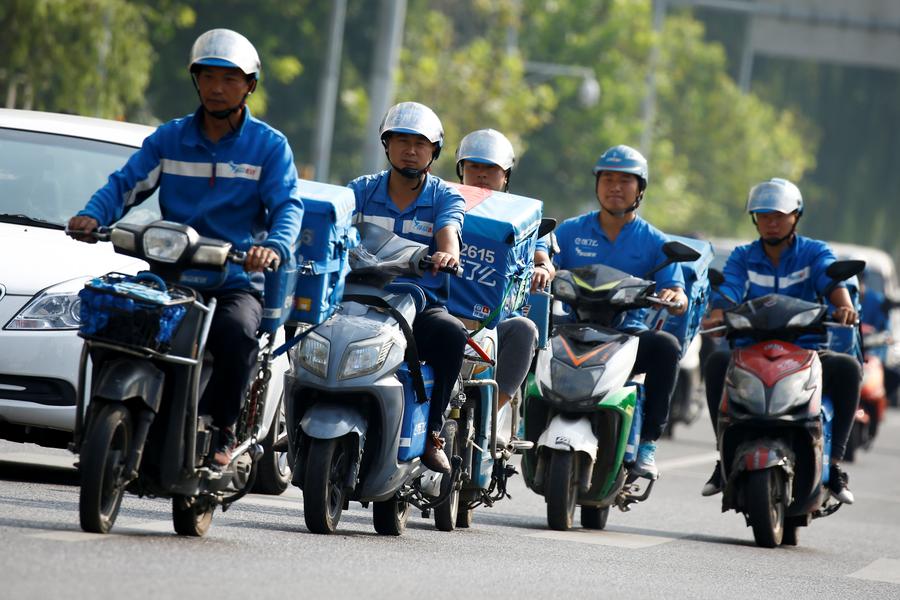The sight of deliverymen speeding on their two-wheelers on China's roads has become so common I used to barely notice them until recently. But a recent industry report made me sit up and take notice.

Drivers of the food delivery service Ele.me begin their morning shift after an internal security check in Beijing, Sept 21, 2017. (Photo: China Daily)
The report-more on that in a bit-said 77 percent of the deliverymen come from rural areas in Henan, Anhui and Sichuan provinces in China. And 15 percent of them are university graduates!
The significance of China's on-demand food delivery and services platforms can't be overemphasized. They are playing a vital role in solving the employment issue amid slowing economic growth.
The booming digital economy has brought hundreds of millions of new jobs to migrant workers, especially in China's first-and second-tier cities.
As the world's most populous country, China is aware its tremendous workforce is one of the most important factors that has contributed to its unparalleled economic development over the past decades.
The Chinese government attaches great importance to the issue of employment, and takes employment as the first priority in the task of improving people's livelihoods and ensuring the stability of the society.
Ele.me and Koubei, which provide local delivery services, plan to recruit more than 5,000 new employees, said Wang Lei, president of Alibaba's local services company in February 2019.
He also said Ele.me and Koubei had already hired over 6,000 new employees in November and December of 2018 and January of 2019.
Alibaba's local services company has also proposed a plan to empower 1 million catering merchants to upgrade their digital solutions, help 1 million vendors to create online offerings, and create 1 million New Retail-related jobs in 2019.
About 77 percent of its deliverymen come from rural areas, and the incomes of the full-time riders exceed the average monthly salary of the employees engaged in private enterprises in urban areas across the nation, according to the company, which was expected to add at least 800,000 new registered riders in 2019.
In addition, more than 2.7 million riders across the country have gained incomes from Meituan Dianping, another food delivery and lifestyle services platform, said an employment report from Meituan's research department.
The figure was up about half a million from 2017, and around 30 percent of the workers, who mostly deliver meals via electric bikes, earn more than 5,000 yuan ($726.5) a month. Most of them were born in the 1980s or 1990s. And 92 percent of them are male.
About 50 percent of the deliverymen have become the major sources of family incomes, and 60 percent are married and have kids, while the spouses of 40 percent of the drivers stay home to look after children or parents.
The report said that about 45 percent of them deliver over 20 orders a day and 40 percent travel over 50 kilometers, the length of Beijing's Fourth Ring Road. Furthermore, 35 percent of them earn a supplementary income in factories or at enterprises, in the public sector or by running their own businesses.
The data also showed that although they spend most of their time on the road, more than 40 percent used their limited spare time for learning and self-development in the past year, with 9 percent choosing online classes and 2 percent attending offline lessons.


